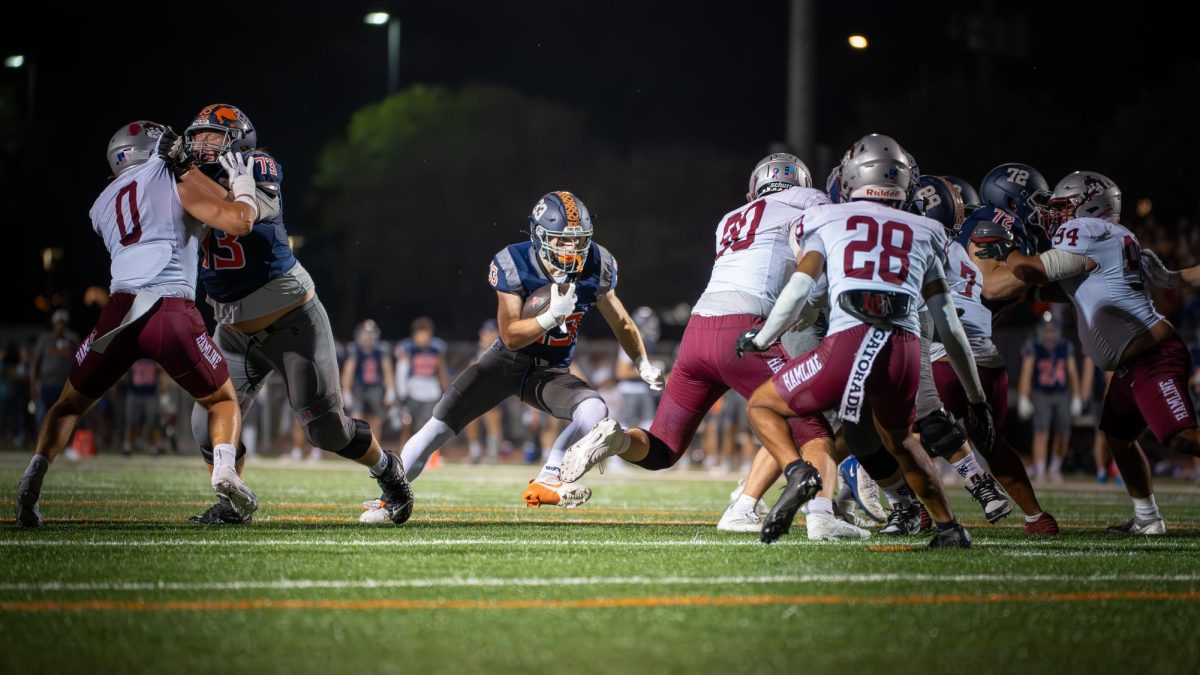Hi everyone! I hope you’ve had a great week. Today, I want to talk about what it means to be part of a team. I got the idea for this week’s column from Coach Allaire, our advisor to Football Operations and Recruiting. I honestly have no idea what that means, or what exactly it is that Coach Allaire does, but he’s a fantastic guy and a great person to talk to.
Between reps in practice, I mentioned to him that I was working on a column, but was dealing with a bit of writer’s block. He suggested that I write about what it meant to be a part of a team, and how this bond and the lessons it teaches can carry over into different facets of life.
I liked the idea, but I wasn’t entirely sure what to do with it. It’s a truism that sports can act as a metaphor for life, but it’s not one that we often analyze in a deeper, more meaningful way. Why do we spend so much of our time in practice and training?
The obvious answer is that we do this for fun, but I know I’ve had a lot of practices that were anything but. I think there’s a lot more to this concept than we think.
Humans are social animals, and we crave the feeling of being part of a group and having a sense of belonging. Sports teams provide a perfect social environment where a group of strangers can become family in a number of weeks through shared experiences. Some of these experiences will be fun and some will be trying, but both create a feeling of closeness that is intense and incomparable. While some people might have to take their time in making friends, athletes have a built-in friend group that they can always rely on.
In the classroom, these bonds serve athletes well; cooperation and group work are second-nature to them. On a team, egos can often lead to an unwillingness to work together with others. Being on a team helps to smooth out egos, hopefully developing teammates that work together selflessly in order to achieve a greater goal. The goals of a team aren’t always compatible with the immediate goals of an individual, and learning to put aside personal goals to achieve group goals is vital.
I’ve been thinking a lot lately about the recent unrest at University of Missouri. There were several instances of aggressive and appalling racism against black students, prompting a number of student-organized protests, including a hunger strike started by a graduate student. The aim of the protests was to force the resignation of the university’s president, Tim Wolfe, who they believed was not adequately responding to racism on campus.
The furor spread throughout campus to the football team, where the black players on the team decided to boycott practices and games until President Wolfe either stepped down or was removed from his post. Less than 48 hours after the football team announced this, Wolfe was unemployed.
To me, this is a pure example of what being part of a team is. If only one or two of those players decided to boycott, nothing would have come of it. However, the team stood together as brothers. While it was only the black students who boycotted, the entire team leant their support, posing in pictures and voicing their undying support for their teammates on social media. Even the head coach, Gary Pinkel, supported his players.
It is inspiring to see teammates acting together, wielding the considerable power they hold as a force for positive change.
This is a concrete example of the lessons that being part of a team can teach, and the morals it instills in every member. When people act together, they can accomplish more than any individual could dream of. Teamwork isn’t just a grade-school idea, or something that only exists on the playground. It is a real force in the lives of many and can clearly force of change and good in the world.
The character of these individuals, who are willing to put what they love to do (and what has provided them with a free education) on the line for what they believe is morally right is indelibly pure. That’s courage — and it’s taught, at least in part, by playing sports on a team.
What do you think? Do you agree? Do you disagree? Why? What would you like to see next time? Please direct any questions, comments or concerns to [email protected]. And remember: Have a great week, and stay positive!






